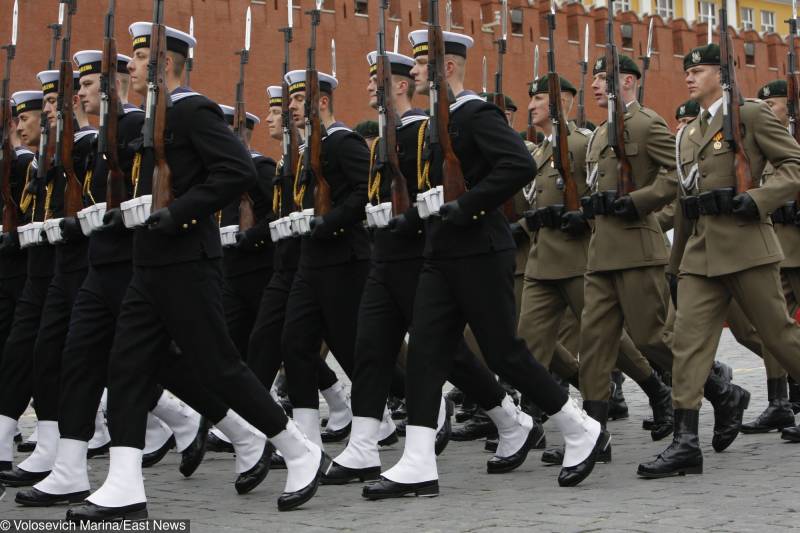Discovery of Western experts: Russians will not attack Europe
As Neil Buckley writes in an influential edition Financial TimesThe new Russian military exercises are probably the largest in Europe since the cold war, and therefore make the whole of Eastern Europe shiver.
Maneuvers will begin on September 14. Within seven days, Russia will hold large-scale military exercises, covering the western part of Russia, the Baltic enclave of Kaliningrad and Belarus, which borders three NATO members: Poland, Latvia and Lithuania. Moscow claims that more than 2017 troops will take part in 13.000 West. In Western capitals, we are confident that the number of military can be expressed in six figures.
This concern is understandable: the exercises are taking place against the background of tensions between the East and the West and against the background of the inclusion by Washington of new sanctions against Russia. In addition, the author points out, in the past, Russia “also used the exercises as a cover for real military actions.” Buckley gives an example: in 2014, military maneuvers covered the "launch of the annexation of Crimea by Moscow".
The head of the National Security Council of Ukraine said: “it’s possible” that Russia could use the “West 2017” to create an assault kulak for the purpose of a “military invasion” into Ukraine. Latvia, Estonia and Lithuania, the three former Soviet Baltic republics, expressed similar concerns.
Ben Hodges, commander of the US Army in Europe, warned that these maneuvers could be a "Trojan horse" that would serve to deliver Russian soldiers and weapons to Belarus. Then they will stay there.
The maneuvers are clearly intended to send a powerful signal to NATO, the article further states. The Alliance had previously strengthened its eastern flank by deploying four multinational battle groups in Poland and the Baltic countries.
And yet, despite the “nervousness of the Russian neighbors,” there is practically no reason to believe that the teachings can serve as a cover for the attack. Experts say this. For example, the chairman of the Council on Foreign and Defense Policy of Russia, Fedor Lukyanov, believes that "there is absolutely no readiness to escalate anything." According to Mr. Lukyanov, the mood in Moscow today is a “confusion” and “expectation” - this is due to the fact that the Trump administration has confused Moscow, which hoped to improve US-Russian relations.
In addition, the preservation of military equipment in Belarus will require the consent of Alexander Lukashenko. Samuel Charap, senior political analyst at the Rand Corporation, is confident that Mr. Lukashenko does not at all strive to turn his native Belarus into a target for Western forces. An appropriate infrastructure is also required, preparation for permanent basing of forces in another country. People can not just "stay in tents." Finally, Belarus openly declares that it has invited Ukraine, Poland, the Baltic countries, Sweden and Norway, as well as organizations, including the United Nations and NATO, to send observers to their territory. That is, Minsk itself seeks to ensure that Russia does not try to do "nothing unexpected," analysts say.
To this it must be added that the EU and NATO states will observe the exercises on 25 hours a day so as not to miss something “sort of”. NATO members should know this: after all, the enemy of the “defense” organization, where the United States plays the main role, has not changed in recent decades. Independent experts will also be watching out of sheer curiosity: it’s interesting that the Russians will bring the newcomer to such major exercises.
- especially for topwar.ru

Information